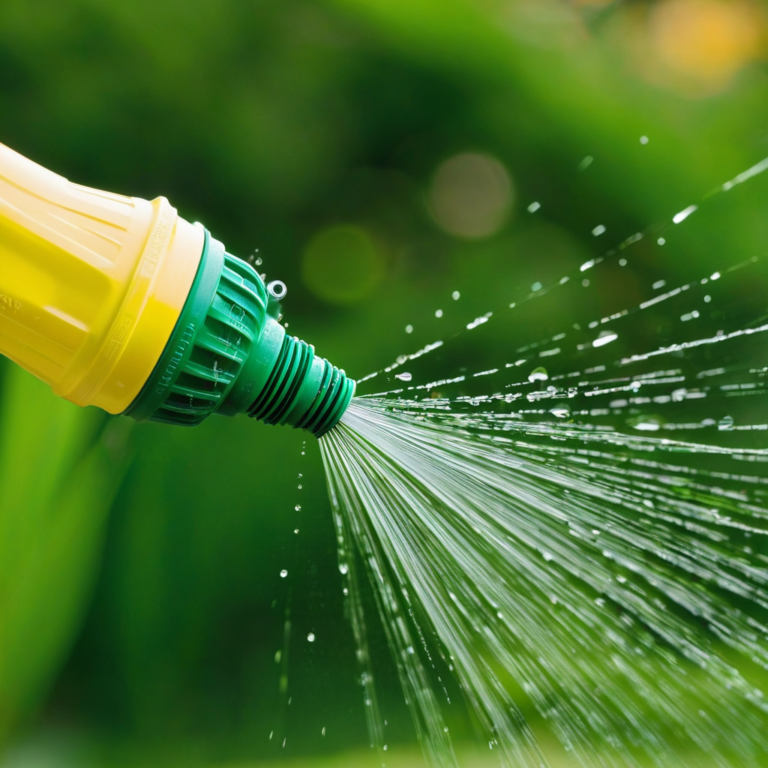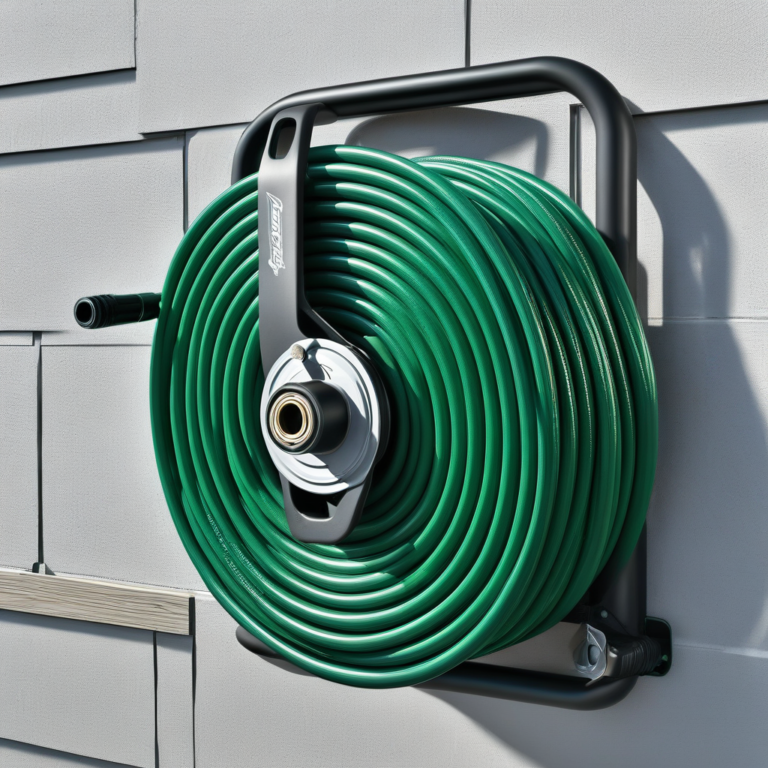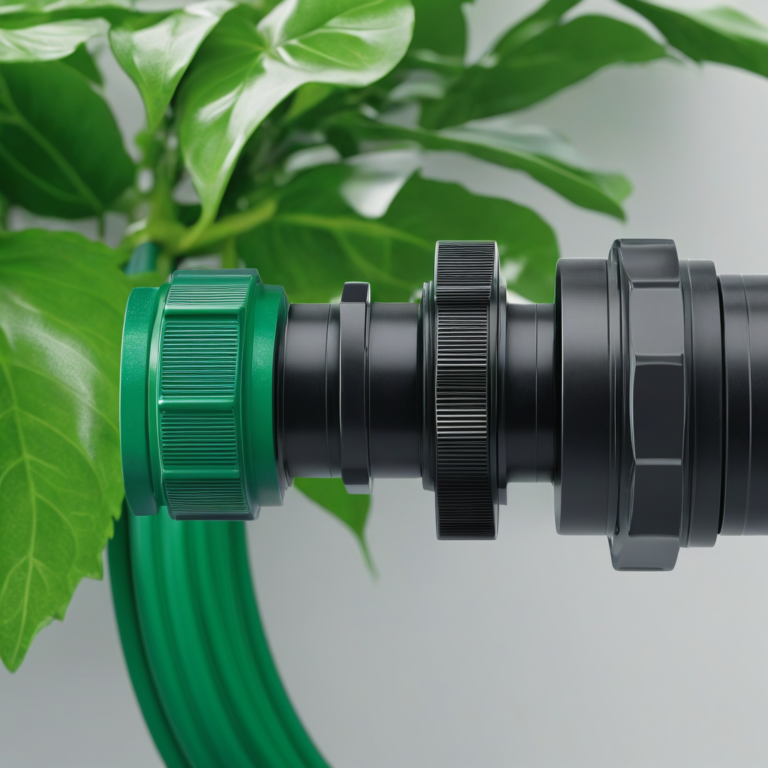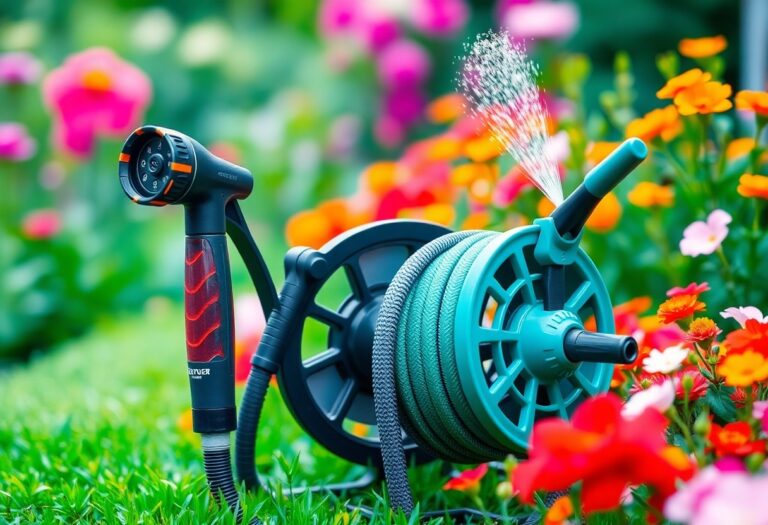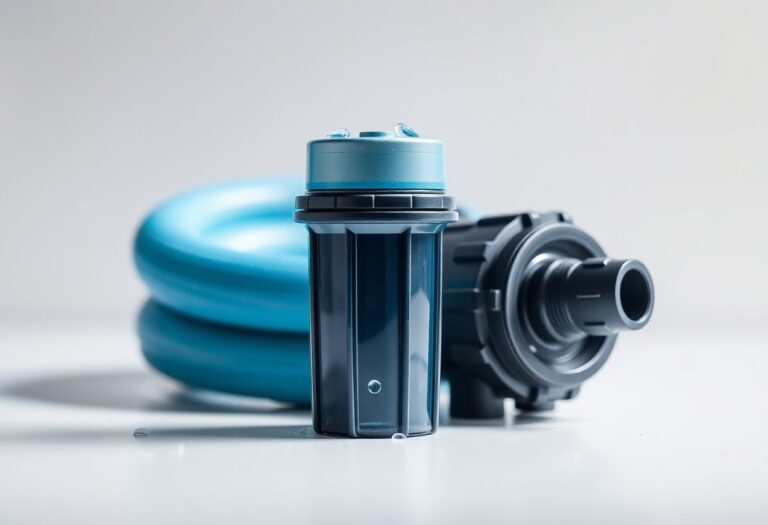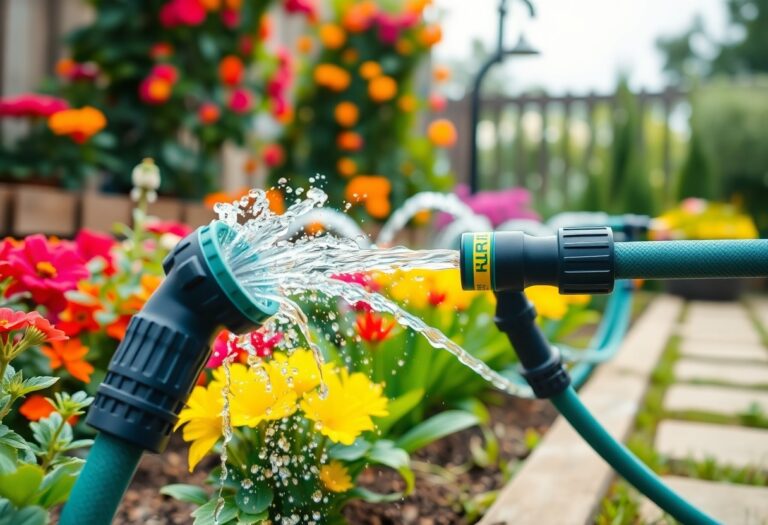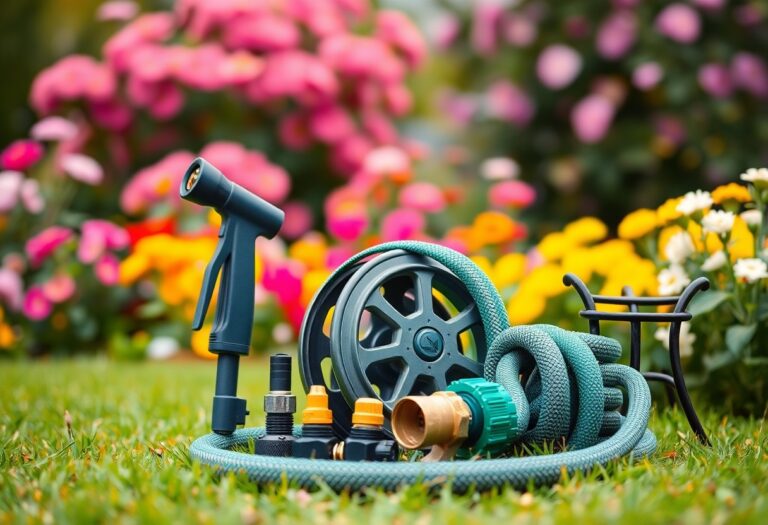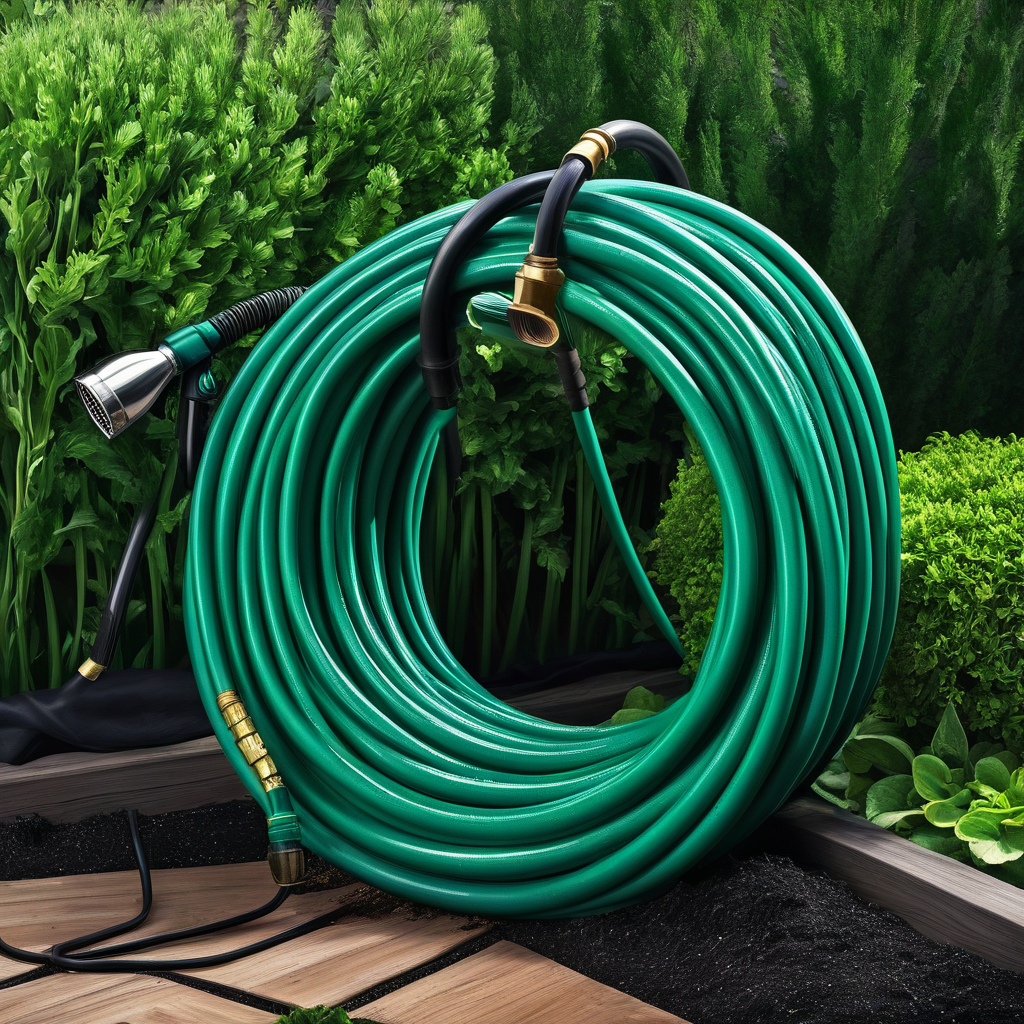
There’s a wide array of garden hose materials available, each offering unique benefits and drawbacks that affect your gardening experience. As you choose the best hose for your needs, understanding these materials can help you make an informed decision. From durability and flexibility to weight and price, every option has its own specific features that will impact your gardening too and tasks. In this post, we will explore the most common garden hose materials, presenting the pros and cons to help you make the right choice for your watering needs.
Rubber Garden Hoses
A rubber garden hose is an excellent choice for those seeking durability and high performance in their gardening tasks. These hoses are typically designed to withstand various temperature extremes without becoming brittle or damaged. Their robust nature means they resist kinks, ensuring a constant water flow. With proper care, rubber hoses can last for many years, making them suitable for heavy-duty use.
Pros of Rubber Hoses
The advantages of rubber hoses are extensive. They are exceptionally durable and resistant to kinks, which can often interrupt your watering. You can use them in both hot and cold temperatures without worrying about damage or wear. Rubber hoses are considered a long-term investment due to their longevity and ability to handle heavy-duty tasks around your garden.
Cons of Rubber Hoses
For all their benefits, rubber hoses do come with some drawbacks. They tend to be heavier than other materials, which may make them cumbersome to maneuver in your garden. Additionally, rubber hoses can be more expensive than alternative options, potentially affecting your budget. They may not be the best fit if you’re looking for a lightweight, cost-effective solution for light garden tasks.
Even though rubber hoses offer many advantages, their weight can be a significant factor for you to consider. If you’re doing light gardening work or have mobility issues, dragging a heavier hose around your yard might prove cumbersome. Additionally, the upfront cost might deter you if you’re unsure about your gardening needs, especially if you only require a hose for occasional use.
Vinyl Garden Hoses
The vinyl garden hose is a popular choice for casual gardeners due to its lightweight design and affordability. These hoses are highly flexible, making them easy to maneuver around your garden while performing light tasks. Their economical pricing allows you to purchase more than one hose for various tasks in your yard, making them a go-to option for everyday watering needs.
Pros of Vinyl Hoses
For you, the benefits of vinyl hoses include their lightweight design, which makes them easy to carry and use. They are also budget-friendly, allowing you to achieve garden goals without breaking the bank. Additionally, their flexibility is perfect for navigating around plants and obstacles, making them ideal for casual gardening and light watering tasks.
Cons of Vinyl Hoses
One drawback of vinyl hoses is their susceptibility to kinks, which can disrupt the water flow and lead to frustration. They also tend to have lower durability compared to other materials, impacting their longevity. Moreover, they may struggle with extreme temperatures, potentially leading to brittleness or cracking when left in harsh conditions.
Vinyl hoses are not the most rugged option available, which can be a concern if you plan to use them for heavy-duty tasks or in extreme environments. You might find that prolonged exposure to sun and weather can deteriorate the material faster than expected. This means that while vinyl hoses are suitable for lightweight use, you may need to replace them more often than other types, making them less economical in the long run if your gardening needs are more demanding.
Hybrid Garden Hoses
Assuming you are looking for a versatile option for your gardening needs, hybrid garden hoses might be the solution. These hoses combine materials such as rubber and PVC, delivering the best of both worlds. If you want to know what is more important when buying a garden hose, understanding hybrid options could guide your decision.
Benefits of Hybrid Hoses
The blend of materials in hybrid hoses provides increased flexibility and durability, making them a versatile choice for various gardening needs. You can easily maneuver them in tight spaces without worrying about kinking, and they often withstand wear and tear better than purely rubber or plastic hoses.
Drawbacks of Hybrid Hoses
Before you decide on a hybrid hose, consider that they can be more expensive than traditional options and may not always be readily available. Additionally, they might not perform as well under extreme conditions, such as freezing temperatures or intense heat.
In addition, some hybrid hoses may have specific limitations regarding pressure tolerance, which can affect your watering efficiency. It’s crucial to evaluate these factors based on your gardening environment before making a purchase, ensuring you select the best hose for your unique needs.
Specialty Materials
To find the right garden hose for your unique needs, exploring specialty materials can be beneficial. These hoses are made from advanced materials like polyurethane or reinforced fabrics, designed for specific applications. They often come with enhanced durability, flexibility, or lightweight properties, making them suitable for tasks such as professional landscaping, industrial cleaning, or portable watering solutions. These hoses can provide you with superior performance in challenging conditions, making them a great choice if you require something beyond the standard options.
Unique Features of Specialty Hoses
The benefits of specialty hoses include features like lightweight construction, flexibility in cold weather, and resistance to abrasion or kinking. For instance, polyurethane hoses are often lighter than rubber options, making them easier to handle. Reinforced fabrics can withstand high-pressure environments, ideal for heavy-duty tasks. With these unique characteristics, these hoses can perform exceptionally well in specialized settings that demand reliability and durability.
Considerations for Specialty Hoses
An important aspect to keep in mind when selecting specialty hoses is their potential drawbacks. Often, they carry a higher price tag and may be designed for niche applications, meaning they aren’t suitable for every gardener or homeowner. You will benefit the most if your gardening or landscaping tasks require specific features that these hoses can provide, as investing in a specialty hose could ultimately save time and improve efficiency.
Materials used in specialty hoses can enhance their overall performance, but this often comes at a cost. You might find that the benefits, such as increased durability or lighter weight, justify the expense if you have demanding garden tasks or professional requirements. However, these high-performance hoses may not be practical for casual users with simple watering needs. Weighing your specific needs against the cost will help you determine if investing in a specialty hose is the right choice for you.
Comparison of Garden Hose Materials
Not every garden hose is created equal; understanding the differences between materials can significantly impact your gardening experience. Below you’ll find a detailed comparison chart that outlines the pros and cons of various garden hose materials, helping you decide which one best suits your specific tasks.
| Material | Pros & Cons |
|---|---|
| Vinyl | Lightweight and affordable, but can kink easily and has a shorter lifespan. |
| Rubber | Durable and resistant to kinks, but generally heavier and more expensive. |
| Reinforced | Strong and flexible, minimizing kinks; however, it can be pricier than basic options. |
| Expandable | Compact and lightweight when not in use, but may be less durable under heavy use. |
Maintenance and Care for Garden Hoses
Now, maintaining your garden hose is important for prolonging its lifespan. Always store your hose in a cool, dry place when not in use, preferably coiled and elevated off the ground to avoid kinks and damage. Clean your hose regularly by rinsing it with water to remove dirt and debris, and inspect it for any signs of wear or leaks. During colder months, drain your hose completely to prevent freezing, and consider investing in a hose reel for organized storage. These simple practices will help ensure your garden hose remains functional and effective for years to come.
Summing up
With these considerations in mind, evaluating the various materials of garden hoses can significantly impact your gardening experience. Each material offers distinct advantages and disadvantages tailored to different needs and preferences. By understanding the characteristics of vinyl, rubber, and polyurethane hoses, you can make an informed choice that best suits your watering requirements and environmental conditions. Ultimately, selecting the right garden hose material will enhance your gardening efficiency and longevity of use, ensuring that your outdoor tasks are as effortless as possible.
FAQ
Q: What are the common materials used to make garden hoses?
A: Garden hoses are typically made from several different materials, with the most common being vinyl, rubber, and reinforced materials. Vinyl hoses are lightweight and affordable, making them suitable for light-duty tasks. Rubber hoses are more durable and resistant to wear and tear, making them ideal for heavy-duty use. Reinforced hoses often combine different materials, offering strength and flexibility, which helps prevent kinking.
Q: What are the advantages of using a rubber garden hose?
A: Rubber garden hoses are known for their durability and flexibility. They are less likely to kink or twist compared to vinyl hoses, making them easier to handle. Additionally, rubber hoses are resistant to extreme temperatures, both hot and cold, meaning they won’t crack or degrade easily. They also have a longer lifespan, typically lasting several years longer than vinyl hoses, making them a good investment for frequent gardeners.
Q: Are there any downsides to using vinyl hoses?
A: While vinyl hoses are lightweight and inexpensive, they do come with some disadvantages. They are generally less durable than rubber hoses and may not withstand heavy use or extreme weather conditions, leading to wear and cracking over time. Vinyl hoses tend to kink easily, which can make watering tasks more frustrating. They also may not offer the same level of flexibility in colder temperatures, which could limit usability during winter months.

